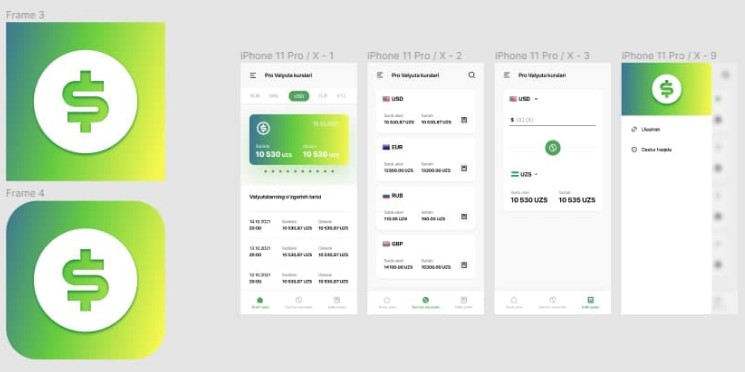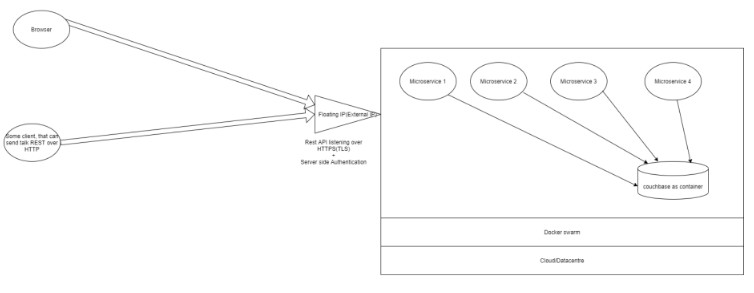Mogen is a small library that converts Kotlin’s models to other programming languages:
- Dart 2.12+,
- OpenApi 3.0 YML (generates
schemasnode), - Swift,
- TypeScript.
Motivation
In elevup we usually write backends in Kotlin. Unfortunately, frontends are whole other story. So the main goal was to
find a way to transfer the knowledge efficiently, and we went for OpenApi. But rewriting each diff in models to OpenApi
was more-less pain and literally no one wanted to do it.
Thanks to Mogen we were able to take all Kotlin models and convert them to OpenApi format. We felt that it was not
enough cause all frontend devs had to rewrite them once again. So eventually we added convertors to more languages.
At this moment we generate frontend API models from backend models.
Features
Supported features:
- primitives – conversion from Kotlin to target language,
- homogenous iterables – select collections and arrays are converted,
- null-safety,
- enums – including custom serialisation name,
- classes – all public properties are transformed,
- nested classes,
- type aliases – only trivial cases, for example
typealias UserId = Long.
Unsupported features:
- maps,
- generics,
- inheritance,
- abstract classes,
- packages (= output is supposed to be printed into one file).
Have a look at sample/src/main where in kotlin folder are source files and in resources folder
you can find generated output.
How to use
First you need to gather all classes that need to be transformed. Simple create list of them.
val classes: List<KClass<*>> = listOf(Foo::class, Bar::class)
Generate definitions
Depending on desired output pick a generator:
DartGenerator… Dart 2.12+OpenApiGenerator… OpenApi 3.0SwiftGenerator… SwiftTypeScriptGenerator… TypeScript
val generator: CachedGenerator = TypeScriptGenerator()
.appendClass(SomeClass::class)
.appendClasses(listOf(Foo::class, Bar::class))
// Access generated definitions
val classes = generator.generatedClasses
val enums = generator.generatedEnums
val types = generator.generatedTypeAliases
Type aliases
When adding classes Mogen automatically detects presence of type aliases. However, in some cases
additional mapping is required. Imagine you want to serialise LocalDateTime. In some implementations it will become
String (ISO representation), in some Long (UNIX timestamp). This conversion is out of the scope of this
library but your frontend models must be compatible. In order to do so, you must define target language type.
For example in TypeScript date is represented by Date. To map it correctly, use appendTypealias method:
TypeScriptGenerator()
.appendClass(User::class)
.appendTypealias(Typealias(localClass = LocalDateTime::class, name = "Date"))
Input (Kotlin):
typealias UserId = Long
data class User(
val id: UserId,
val birthday: LocalDateTime,
)
Output (TypeScript):
export type LocalDateTime = Date
export type UserId = number // copied automatically
export interface User {
birthday: LocalDateTime; // Kotlin's class name is kept, type is created
id: UserId;
}
Indents
Everyone uses different indentation rules. To make it easier for you Mogen lets you configure basic indentation unit.
To adjust default indentation pass your own Indentation in generator’s constructor. You can create your own instance or
use one of pre-defined indents:
GenericIndents– designed for Dart, Swift and TypeScript,OpenApiIndents– designed for OpenApi.
TypeScriptGenerator(indents = GenericIndents(indent = "\t")) // For 'tabs' crew
OpenApiGenerator(indents = OpenApiIndents(indent = " ")) // Fore 'spaces' crew
Pretty print
In case you do not want to deal with formatting use Printer to convert generated definitions to single String
Library comes with bundled:
GenericPrinterthat deals well with Dart, Swift and TypeScript,OpenApiPrinterthat is designed for OpenApi.
val allDefinitions: String = generator.print(GenericPrinter)
Annotation processors
Sometimes it’s useful to keep some metadata. Imagine you have just deprecated some property in backed, and you
want to let others know that they should migrate their code. In that case you want to
use DeprecatedAnnotationProcessor! Annotation processors are passed in generator’s constructor.
Deprecation
TypeScriptGenerator(annotationProcessors = listOf(DeprecatedAnnotationProcessor())) // <- pass them here
.appendClass(User::class)
.appendTypeAlias(Typealias(localClass = LocalDateTime::class, name = "Date"))
.print(GenericPrinter)
.let { println(it) }
Input (Kotlin):
data class User(
val id: Long,
@Deprecated("Not time-zone bulletproof, calculate it on your own")
val age: Int,
val birthday: LocalDateTime,
)
Output (TypeScript):
export type LocalDateTime = Date
export interface User {
/**
* @deprecated Not time-zone bulletproof, calculate it on your own
*/
age: number;
birthday: LocalDateTime;
id: number;
}
JavaX annotations
For validations like min, max, etc. on server; during conversion it will append comment where validation constraints
are listed.
Input (Kotlin):
data class User(
val id: Long,
@field:Size(min = 1, max = 100)
val firstName: String,
)
Output (TypeScript):
export interface User {
/**
* min: 1
* max: 100
*/
firstName: string;
id: number;
}
Jackson annotations
Handles @JsonProperty and @JsonValue annotations that can modify name of serialised property.
Input (Kotlin):
data class User(
@JsonProperty("user_id")
val id: Long,
@JsonProperty("tea")
val favouriteTea: Tea? = null,
) {
enum class Tea {
@JsonProperty("g") GREEN,
@JsonProperty("b") BLACK,
}
}
Output (TypeScript):
export enum UserTea {
GREEN = 'g',
BLACK = 'b',
}
export interface User {
tea: UserTea | null;
user_id: number;
}
How to collect all models
If all models are in one package then Reflections library can be helpful! Then you can use this code to
get all classes:
val sourcePackage = "com.foo.bar" // Enter correct value
val reflections = Reflections(
ConfigurationBuilder()
.filterInputsBy(FilterBuilder().includePackage(sourcePackage))
.setUrls(ClasspathHelper.forPackage(sourcePackage))
.setScanners(SubTypesScanner(false))
)
val typeList = reflections.getSubTypesOf(Object::class.java) + reflections.getSubTypesOf(Enum::class.java)
val classes = typeList.map { c -> c.kotlin }.distinct()
License
Copyright 2021 elevup
Licensed under the Apache License, Version 2.0 (the "License");
you may not use this file except in compliance with the License.
You may obtain a copy of the License at
https://www.apache.org/licenses/LICENSE-2.0
Unless required by applicable law or agreed to in writing, software
distributed under the License is distributed on an "AS IS" BASIS,
WITHOUT WARRANTIES OR CONDITIONS OF ANY KIND, either express or implied.
See the License for the specific language governing permissions and
limitations under the License.


